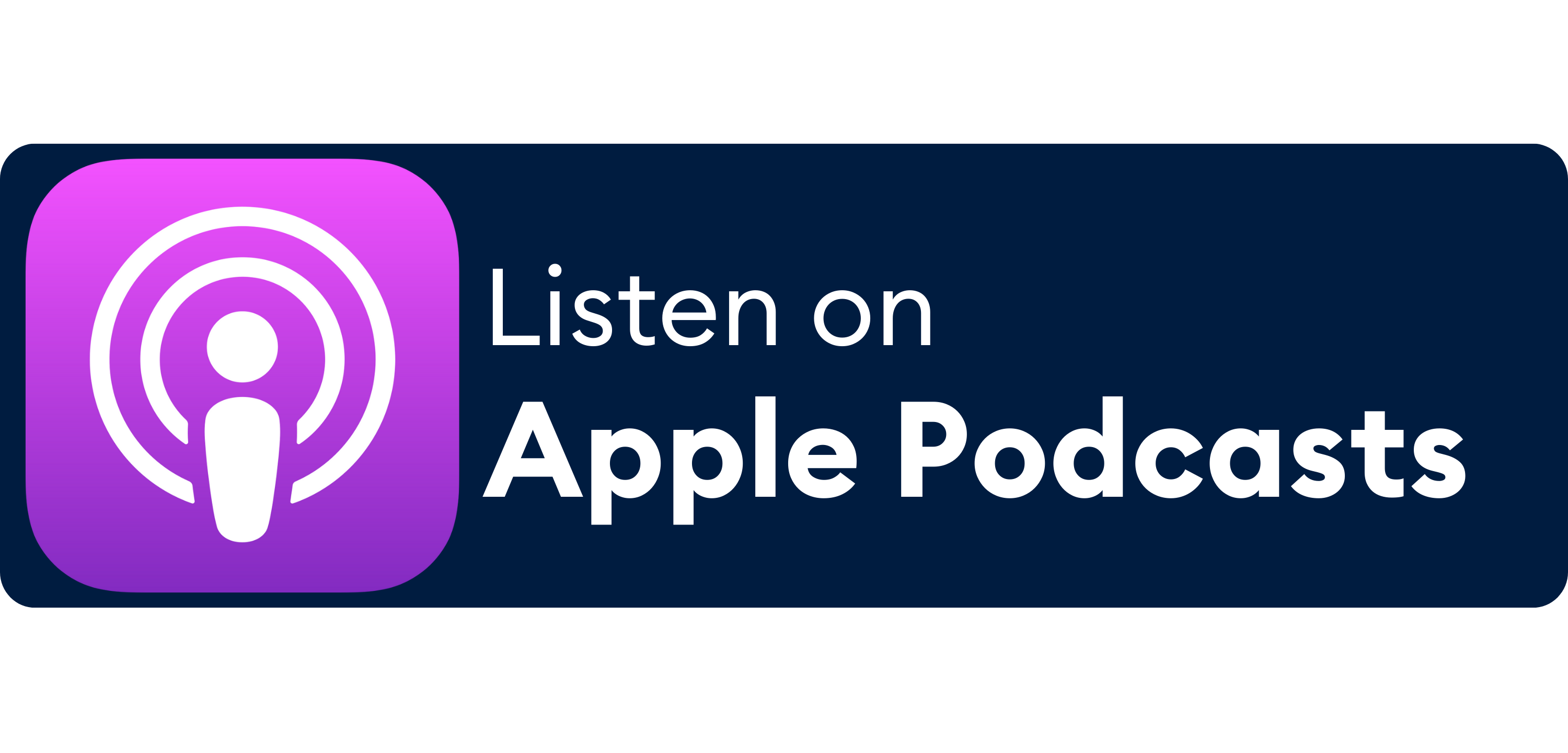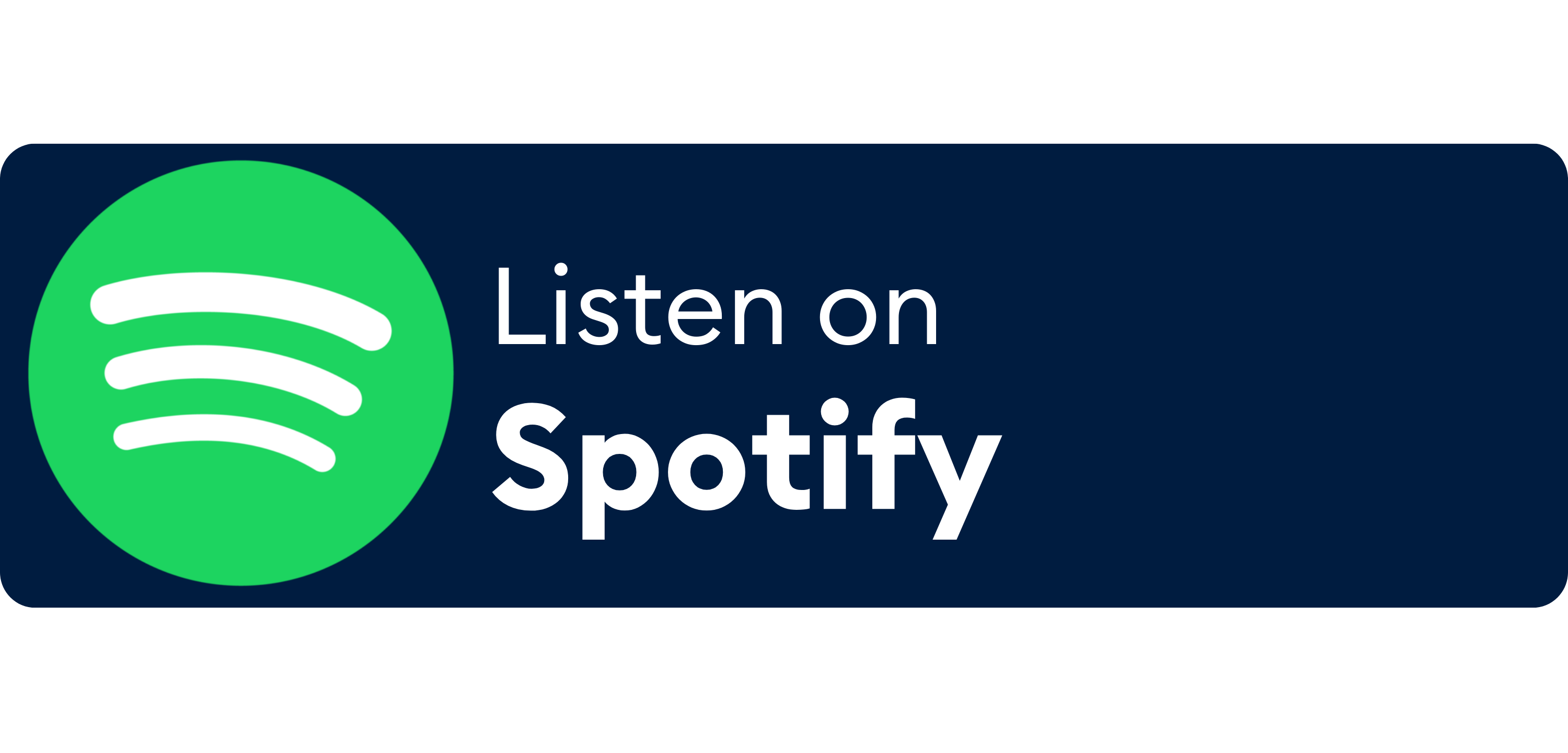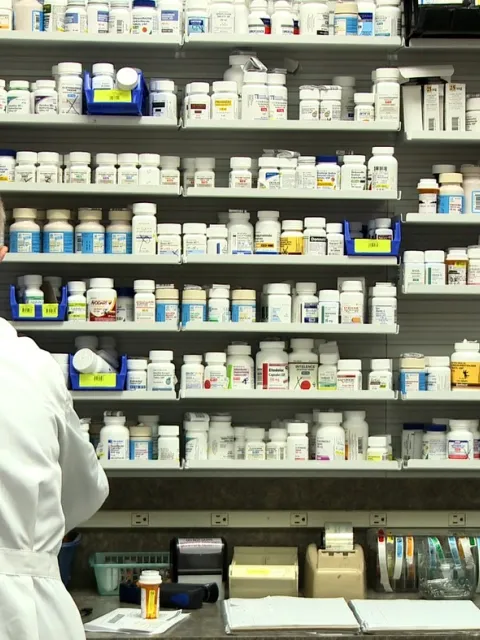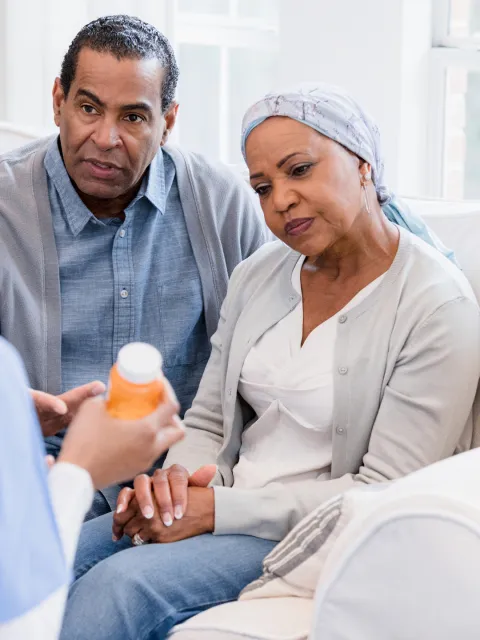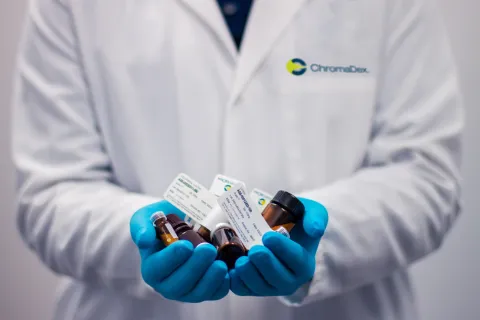
Kevin Outterson of CARB-X joins UICC's Let's Talk Cancer podcast to discuss the threat of antimicrobial resistance (AMR), in particular for cancer patients – and what is being done to it.
Antimicrobial resistance – or drug resistance – is one of the most serious health threats facing humanity. It could cause 10 million deaths and cost overall more than USD 100 trillion in public health by 2050 if no action is taken.
Drug resistance occurs when germs are not killed by the medicines designed to destroy them.
Why? Because antibiotics and other antimicrobials are being overused and misused.
Drug resistant infections are especially dangerous for cancer patients and others with weakened immune systems. Infection has become the second leading cause of death in patients with cancer.
To mark World Antimicrobial Awareness Week, we speak to Kevin Outterson, Founder and Executive Director of CARB-X, an international public-private partnership to accelerate global antibacterial innovation.
"Aspirin will always work. Heart disease drugs will always work. You know, if there's amazing prevention or cures from cancer, they should always work. The difference is that for anything with a microbial target, antiviral, antibacterial, you have to worry about evolution. You have to worry about the target, the microorganism changing over time and therefore becoming resistant."
– Kevin Outterson, Professor of Law at Boston University and Executive Director of CarbX
See podcast transcript below
Listen on: Spotify | Stitcher | Apple Podcasts | Amazon Music | Audible | Deezer
Podcast transcript
Cary Adams: [00:00:02]
Welcome to Let's Talk Cancer. I'm Cary Adams, the CEO of UICC. Antimicrobial resistance or drug resistance is a serious health threat to humanity. Today, around 1.27 million people die every year as a direct result of drug resistant infections. By 2050, this number could reach 10 million and cost a cumulative $100 trillion of economic output without collective action. Drug resistance occurs when germs are not killed by the medicines designed to destroy them. Why? Because the overuse or misuse of today's antibiotics and other antimicrobials makes them ineffective over time. They simply don't work. Drug resistant infections are especially dangerous for cancer patients because the treatment they receive exposes them to a greater likelihood of infection. Few people know that today the infection has become the second leading cause of death in patients with cancer. To mark World Antimicrobial Awareness Week, we speak to Kevin Outterson, executive director of CarbX, an international public-private partnership to accelerate global antibacterial innovation. Kevin, welcome and thank you very much for giving us your time today.
Kevin Outterson: [00:01:23]
Always happy to do anything to help the fight against cancer.
Cary Adams: [00:01:27]
The WHO has added antimicrobial resistance to its list of ten biggest threats to health worldwide. So perhaps to begin with, could you explain why antimicrobial resistance occurs and why it's becoming such a major health risk?
Kevin Outterson: [00:01:43]
When you think about different types of medicine, antibiotics are probably one of the most important classes of drug in human history. They've really done amazing things to extend human lifespan. But most drugs, aspirin, for example, is going to work just as well on you today as it will on our grandchildren in 50 or 100 years. Aspirin will always work. Heart disease drugs will always work. If there's amazing prevention or cures from cancer, it should always work. The difference is that for anything with a microbial target - antiviral, antibacterial - you have to worry about evolution. You have to worry about the target, the microorganism changing over time and therefore becoming resistant. So for antibiotics, penicillin was an amazing discovery. But as soon as we started using it, we needed to start discovering another penicillin just to avoid falling behind. So it's different from anything else that we've looked at. And we've become so used to having these drugs, these amazing miracle, the original miracle drug, that we don't understand, that we have to work hard just to avoid slipping behind.
Cary Adams: [00:03:08]
We have at UICC, been looking at this for the last year and a half because it was raised with us by certain cancer societies that they were seeing that one in five cancer patients were actually being affected by an infection and many of those led to them being in intensive care as a result of that infection. So what is it about cancer patients specifically that that leaves them open to antibiotic resistance?
Kevin Outterson: [00:03:36]
I published, together with some infectious disease physicians, a review that looked at this issue and the Clinical Journal of the American Cancer Society last year. And but anyone here who's a survivor of cancer has a friend or family member who's gone through cancer, you understand how invasive some of the treatments are, the visits to hospital, the openings into the skin that are required for treatments, the fact that some of these treatments suppress or modify your immune system in ways that might be killing the cancer but make you more vulnerable. And so you have to be more careful about the other things in life. You total all these things up and the data shows that while antimicrobial resistance superbugs are a problem for everyone, for people with cancer, the risks are really three times higher that they'll get a fatal infection from these superbugs because of all the things that cancer treatment does to make you higher risk. Wonderful treatment but like you said before, we want to be careful that the advances in cancer aren't undermined by the old foe of infection.
Cary Adams: [00:04:48]
UICC is working hard to sensitize the cancer community about this issue because many of the people I talked to are unaware of the challenges that AMR poses to cancer treatment in the future. And we want the cancer community to be ambassadors for the AMR story that they are there talking to governments and and hopefully get them to think differently about how antibiotics are used in their country and around the world. Now, one of the things in your report that you mentioned, you talked about the need for AMR surveillance systems for cancer patients. Perhaps you could give us a little bit more about that because we do struggle as a cancer community anyway with just basic information through cancer registries. Perhaps you could expand on why you think AMR surveillance systems for cancer patients are so important.
Kevin Outterson: [00:05:34]
We were surprised when we did the review just how little detailed data there was that tracked in a careful way using medical records, as well as just top line statistics on the experience of cancer patients with infection and particularly with drug resistant infection. And so when a cancer patient dies, even if the actual cause of death was a drug resistant infection, that's almost never shown on the death certificate. Something else is almost always there. Maybe the cancer itself, the underlying cause of death. But the proximate cause was the infection that interrupted the course of treatment that may have been working. So we think that there's a need for a lot more data to understand what is the actual experience of these patients with infection, What sort of drugs are they receiving? Most of those antiinfective drugs, the antibiotics and whatnot are really amazingly inexpensive. There's been lots of complaints about the cost of cancer therapy, but the antibiotics are like the bargain in this process. But what we don't know is how many patients with cancer are failing from specific drugs become resistant. And then what are we going to do to make sure that in five or ten years we have a replacement for those things that are failing today?
Cary Adams: [00:07:11]
And your organisation which you're the founder of I believe CarbX stands for Combating antibiotic-resistant cacteria by a pharmaceutical accelerator, which is a mouthful in itself.
Kevin Outterson: [00:07:24]
You can see why we call ourselves CarbX.
Cary Adams: [00:07:27]
I prefer CarbX, it's a lot easier for me. It's a lot easier for me. But I mean, the other side of the coin of this is, okay, we want to see antibiotics used more sensibly around the world, not misused or abused in any way. But also we want to develop new ways in which we can address the issue. So what challenges are there in progressing research and development for new treatments? What are the barriers? Why aren't we seeing more antibiotics coming onto the market? I mean, we see so much investment and so many companies investing in cancer treatment and care. A lot of new medicines planned to come out in the next five, ten years. What's stopping us getting new antibiotics?
Kevin Outterson: [00:08:18]
The antibacterial research community often looks over longingly at the pipeline and the money going into cancer. Look how many antibiotics we've had in the last decade. Look how many are in the clinical pipeline. It's So few compared to the amazing work that's being done over in oncology. And if I had to say one word is the difference: it's money. There's great reimbursement. Companies can make money selling cancer drugs or having trouble making money selling antibiotics. The science, amazingly, is remarkable. All of the basic research money that's been going into the NIH and similar agencies around the world, remarkable new things coming out in the antibacterial world. Science, I don't think, is the right limiting step. It's money. We aren't paying for antibiotics as if they're valuable to society. We're doing that for cancer drugs and we're getting a lot of them as a result. We haven't done anything similar for antibiotics.
Cary Adams: [00:09:23]
It's a real challenge, isn't it? Particularly when you've got a medicine, which actually the more it's used, the less value it is. So that's an unusual market condition, isn't it, for a drug or a medicine to come into use in health systems around the world.
Kevin Outterson: [00:09:40]
From the language of economics, we'd call it a negative externality. It would be like a factory that makes something but pollutes all of its neighbours. And antibiotics are a drug class that helps the patient in front of you, but may very well be delivering a less valuable drug. Or, on the flip side, more resistant bacteria to everyone else. And so that calls for being really cautious on how we use these drugs. We don't want to give them inappropriately to any patient because it could damage their microbiome and it certainly can damage the usefulness of the drug for everybody else, including our children. So we want to be careful with them. And that really is the root of the problem: that a new antibiotic comes to market for excellent reasons, we put them behind glass and we say break glass only in case of emergency. We try to use it as little as possible for the first five or ten or 15 years. But for a company that spent 15 years bringing a product to market, they get FDA approval and then they're told, let's use your brand new drug almost with no one for as long as we can. That's a great answer for public health. It's a terrible answer for the company. It's why the majority of them are going bankrupt and leaving the sector. That's why we have so few new drugs. The reality has penetrated to the boardrooms of the drug companies.
Cary Adams: [00:11:11]
We're going to have to find another way of rewarding that investment because the standard ROI process doesn't work.
Kevin Outterson: [00:11:17]
The United Kingdom is doing exactly that. They have pioneered a new way to pay for antibiotics. They've selected two antibiotics there. Those contracts are live now. It's a remarkable first of the world system really paying us a subscription. Let's pay for the value of having these antibiotics in England without any regard to the volume of sales in the country. So paying for the protection value. There's a proposed legislation in the US, There's processes in other G7 countries also looking to do the same. But really the United Kingdom has been the pioneer in the rest of the of the leading countries. Their wealth, the countries of the world need to follow suit.
Cary Adams: [00:11:58]
There are other things as well. What about diagnostics? How is that going? Can you see developments and improvements in the way we can diagnose infections?
Kevin Outterson: [00:12:07]
Diagnostics is a key issue. We learned so much about the importance of diagnostics in COVID. We had both positive and negative experiences. We broke the barrier of getting rapid diagnostics into the hands of people in their homes. There are arguments five years ago that all of us couldn't be trusted to do these sort of tests at home, that it had to be done in doctor's office. Well, you know, a couple of billion test results later, I think people are pretty comfortable now with lateral flow SATs, rapid tests and do it all the time now. And so the question is, can we get a diagnostic into the hands of patients and into the hands of treating physicians, not just in the shiny hospitals and capital cities, but everywhere that patients need this information? Because if you could reliably tell a patient you don't need an antibiotic, you have a viral infection, we save a lot of unnecessary use of antibiotics. And also, if you can tell a doctor this patient, the superbug they have is resistant to everything you would normally give them, and you must get drug X or drug Y, the new things or else die. All of that is amazingly important clinical information, so we're working hard to get that done. There are economic challenges that are different from what I described with antibiotics, but that are daunting in this space. And I'll just say the simplest of them is that if an antibiotic is really inexpensive, $5 or $4 a script that you pick up at WalMart, a diagnostic that is designed to encourage you not to take that drug if it's going to be cost effective just at that patient silo, the diagnostic has to be almost free. You can't have a $10 diagnostic to save a $5 prescription. So there needs to be some thinking on ways to make the diagnostic free or nearly free, which is what we do with the PCR test. We get billions of those for free from the government because otherwise you've put people in an impossible situation. You have to spend more money in order to to save money by not taking the antibiotic when the antibiotic is so cheap.
Cary Adams: [00:14:34]
Let's move on to the World Antimicrobial Awareness Week 2022. The title of that is Preventing Antimicrobial Resistance Together. So let's just pick that apart slightly. So it implies obviously, prevention. So what can be done at global and national level to improve infection prevention and to control it? What what is the best practice that you've seen around the world?
Kevin Outterson: [00:15:01]
I think the best infection is the one that never happens. To create a brand new drug is really an amazing scientific and technological feat that takes 15 years and lots of money. A similar amount of money spent to improve the quality of the water supply and the sanitation systems in major cities or medium sized cities and poor countries around the world could have an amazing impact. We have vaccines that are effective against some bacteria and some viruses. And getting those vaccines into the arms of people that would benefit from them - which is really almost everybody - is an amazing, cost effective strategy. So while I focus on trying to get new technologies to the market, it's important that these prevention technologies, whether they be vaccines or clean water, clean food, sanitation, that these are also advanced. It doesn't matter what the infectious disease threat is, if we have a good primary care system, we can deal with it in the first few months while we try to devise something more specific. And similarly, a lot of the reduction of mortality in the wealthier countries in the 20th century, the early part of the latter part of the 19th was due to things as simple as clean water, as profound and powerful as that. So it doesn't help if a cancer patient gets 21st or 22nd century technology cancer treatment, but then goes home to a situation in which clean water, clean food and sanitation is not assured. So I believe in prevention. Everyone does. It's a powerful thing and we need to continue to make the case for it.
Cary Adams: [00:16:49]
Which is great, and in fact, prevention a really common theme with the cancer community as well, because, you know, vaccinations, for example, for HPV, avoiding cervical cancer in the future, reductions in tobacco use, obesity control, all these things. We know 40 to 50% of cancers are caused by modifiable risk factors. So there's a lot of alignment in the space with our own approach, which is why we need to work on 1. Prevention and 2. early detection. And things are a lot easier then. But let's move on to this issue. I mean, I'm actually sitting here wearing my light blue jumper. I noticed that you've got a light blue shirt on. It's the colour of AMR awareness represents a multisectoral approach, collaboration against a shared health threat. Why do you think it's important that, for example, the cancer community and others get together with the AMR community to actually raise this issue and to take it forward?
Kevin Outterson: [00:17:46]
Communities like cancer can help. I live in Boston. There's a march for a lot of diseases here and causes and they raise great money and you name it. There's a group for it, many of them cancer, but not just cancer groups. Very effective patient mobilisation. There's not that many patients who identify as "I'm a survivor from a drug resistant infection". You know, there are some groups. There's the Sepsis Alliance, there's survivors of a Clostridium associated, a bacterial disease that results from use of antibiotics, that destroys the gut microbiome and then creates a terrible form of diarrhea. The cystic fibrosis community in the US this year has made it their top priority to to educate US government on the fact that people suffering from CF are now doing better because the new drugs are much better. But they're still on their last antibiotic. So to the extent that other patient groups rely on antibiotics, this is a good moment for those groups to also stand up and say, yes, we need to keep this thing going because we don't want to wake up one day and find out that all the antibiotics don't work.
Cary Adams: [00:19:06]
I mean, the cancer community is starting to get involved. UICC is lead in that, working with many, many organisations around the world. We have a new publication that we're sharing to educate the cancer community, But I agree with you. Why should it stop at the cancer community? I mean, any individual who has an illness has to be treated in hospital is probably exactly the same level of risk of getting an infection and then possibly dying of it. So moving away from communities, what about individuals? What can we do individually? Kevin, what should I be doing in the way that I operate? I mean, if I'm offered an antibiotic by my doctor, should I be asking the question "why you are giving this to me?" Should I be challenging that? I mean, what is it that I should be doing?
Kevin Outterson: [00:19:48]
Well, I'd always encourage you to have a reasonable conversation with your doctor about what they're saying. But if you talk to doctors, they frequently say that they'll give an antibiotic because the patient is asking for it or that the physician is feeling pressure to do something. There's a lot of research work that identifies this and articulates how this happens. And in the US, a lot of physicians are rated by the health insurance plan. The patients give them a rating like a Yelp rating or an Airbnb rating. And if a doctor tries to be really strict in not giving antibiotics, all it takes is a couple of patients giving them a 1 for there to be trouble with their reimbursement from health insurance. So we can be informed patients that ask reasonable questions and don't demand an antibiotic when you have a viral infection. We also have a lot of power as consumers. For years, the Food and Drug Administration tried to regulate the use of antibiotics in the animal agricultural sector in the US, and there was a lot of politics and it didn't go anywhere fast for decades. The biggest change in the past few years in terms of agricultural use of antibiotics, the United States has been major corporations like McDonald's and Chick-Fillet and other chain food restaurants and big retailers beginning to announce and then implement transitioning to antibiotic free types of meat and not just having it as an alternative, but making it the default choice, especially for chicken. So our power as consumers is immense. And this change happened at these major corporations because they were listening to their customers and their customers are saying, we would prefer this and and boom - amazing change, something that was politically impossible for decades. And companies are voluntarily doing it to follow their customers. There's ways to get involved politically to make sure that adequate resources are given to this fight in every country. Drug resistant bacterial infections are killing more people around the world than either HIV or malaria. You're pretty close to the total of HIV and malaria combined. Just think of the global mobilisation that's been done against those diseases. That's part of the reason why drug resistant bacteria kills more, because we've been successful in moving those numbers down. But tremendous global effort, lots of political salience stories in the press and everything else. People understand this, these problems that we need to respond to them. We don't have nearly that level of political, social, emotional mobilisation yet against drug resistant bacteria.
Cary Adams: [00:22:43]
Well, hopefully the cancer community, both for individual level and at community level, can make a difference. Kevin, it's been great talking to you and thank you very much for giving such great answers to the questions and bringing to light the key challenges we have in this area. UICC will continue to push this around the world to our community. I'm glad that we're working in partnership. I think this is something that we can really shine a light on and hopefully we can get national governments and global leaders engaged in something that you say is a big threat longer term. So thank you very much for your time, Kevin. Really appreciate it.
Kevin Outterson: [00:23:17]
I appreciate the work the UICC is doing to make sure the safety net of antibiotics is there not just for the cancer patients, but for everybody.
Cary Adams: [00:23:28]
I hope you enjoyed this new episode and if you did, please leave us a review on Apple Podcasts and Spotify. We need to spread the word about antimicrobial resistance and this looming threat to global health, so please do share this episode with others. UICC has a dedicated page to antimicrobial resistance on our website, uicc.org. There you can learn more about AMR and also find a social media toolkit with texts and images for you to download and share with your network.
World Antimicrobial Awareness Week
World Antimicrobial Awareness Week (WAAW) is celebrated from 18-24 November every year to improve awareness and understanding of Antimicrobial resistance. The 2022 theme is 'Preventing Antimicrobial Resistance Together'. It encourages all sectors to use antimicrobials prudently and aims at strengthening preventive measures addressing AMR.
Last update
Friday 08 September 2023